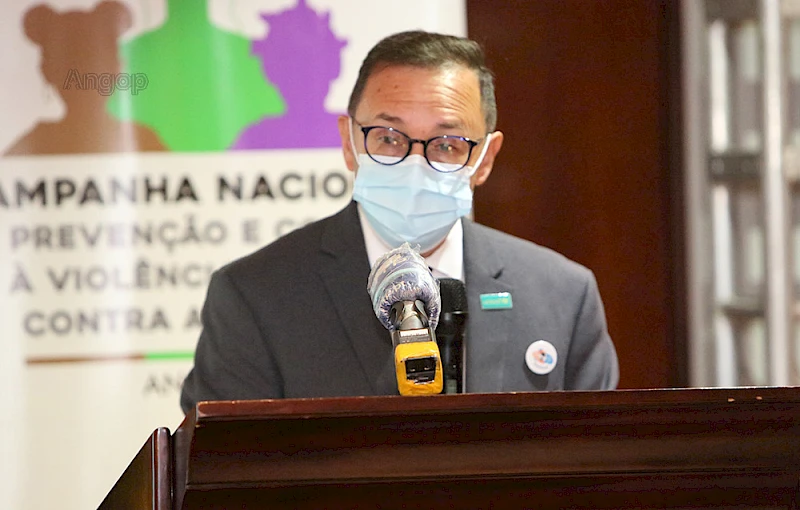Luanda - The United Nations Children's Fund (UNICEF) pointed out, on Monday, that the promotion and recognition of family skills reinforce the role of the family in the protection and development of children, particularly in the first years of life.
In a message in the ambit of the International Children's Day, marked on June 01st, the institution says that the strengthening of family competences and the reinforcement of social protection as indicated in the 11 Commitments to Children, in particular Commitment number 9, is a way to ensure the empowerment of families in their role in protecting children, specifically in the first years of life.
The UNICEF representative in Angola, Ivan Yerovi, who encourages those who, directly or indirectly, make possible the realization of each right, with emphasis on the family - the first space for the protection of the child - regrets, however, the fact that the family is currently very fragile and limited in responding to the child's needs, both due to the loss of values and the aggravation of the social and economic situation.
Ivan Yerovi also highlights the fact that it is sometimes in the family where there are several forms of violation of the rights of a child, such as sexual abuse or neglect.
“Children can only thrive and develop when they feel safe and protected, when the relationship with family members and the community around them is stable, and when their basic needs are met,” says Ivan Yerovi.
For Ivan Yerovi, the family must have access to the services and resources they need so that they can adequately play their role in the protection and development of each child.
The official recognizes the Executive's effort to strengthen the social protection system with the implementation of cash transfer programmes that are followed by the reinforcement of other social services.
The reinforcement of social protection actions, in the view of Ivan Yerovi, is a proven way to build family resilience and prevent the sharp impact of crises.
“The occurrence of the Covid-19 pandemic and other emergencies have been an authentic test for families and states and have created countless challenges in the materialization of children's rights”, reinforces Ivan Yerovi.
According to the official, as this second year of the pandemic progresses, parents and guardians of children continue to struggle to keep children learning and their families functioning, often under worsening poverty scenario.
He adds that children's needs are multiple, and response actions must also be multiple and integrated, which is why he has been calling on states to continue basic social services.
Ivan Yerovi reinforces the need to ensure access to health services such as vaccination, nutrition, malaria prevention and other diarrheal diseases, as well as the creation of conditions for access to hygiene and sanitation, provision of drinking water without forgetting the reinforcement protection system against many forms of violence.
"The responsibility to protect the child must be shared and must involve everyone: the family, the children themselves, the government, civil society and the private sector", considers Yerovi.






























